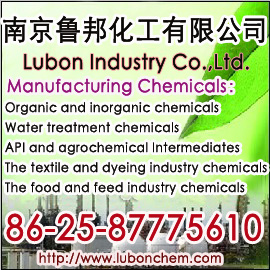Glycosaminoglycans (formerly called mucopolysaccharides, amino polysaccharides and acidic polysaccharides) in the structure of the simplest kind, it is by repeating disaccharide units
GlcUA-β (1 → 3) -GlcNAc, with β-1,4 glycosidic linkage formed. In the body, often in free form or covalently (proteoglycan complexes) in the form of complexes present.
The surface of the molecule contains many hydrophilic groups, can draw their physical 1,000 to 10,000 times the volume of water, keeping the moisture of loose connective tissue is important; while the viscosity of the HA has a strong, and the joints with a vitreous Run wet and protection; well promote wound healing.
HA is present in the extracellular matrix of connective tissue of animals. Among them, the bovine vitreous, human umbilical cord and rooster combs are commonly used material extracted HA. HA is widely used in cosmetics, artificial joints, surgical lubricants and other products. United States Food and Drug Administration (FDA) approval in 2003 through the use of injection patches of skin wrinkles.

Tag Archives: Hyaluronic acid Details
Hyaluronic acid Details
Glycosaminoglycans (formerly called mucopolysaccharides, glycosaminoglycans and acidic polysaccharides) in the structure of the simplest kind, it is by repeating disaccharide units
GlcUA-β (1 → 3)-GlcNAc, with β-1, 4 glycosidic bond together. In the body, often in free form or covalently (proteoglycan complexes) in the form of complexes present.
Surface molecules which contain a lot of hydrophilic groups, the body itself can absorb 1,000 to 10,000 times the product water, the water for maintaining the loose connective tissue is important; HA while a strong viscosity of the vitreous humor and joint having Run wet and protection; still promote wound healing.
HA is present in the extracellular matrix of connective tissue of animals. Among them, the cattle vitreous, human umbilical cord and rooster combs are commonly used material extracted HA. HA is widely used in cosmetics, artificial joint, surgical lubricants and other products. The U.S. Food and Drug Administration (FDA) approved in 2003 through the use of injection repair fine lines.
